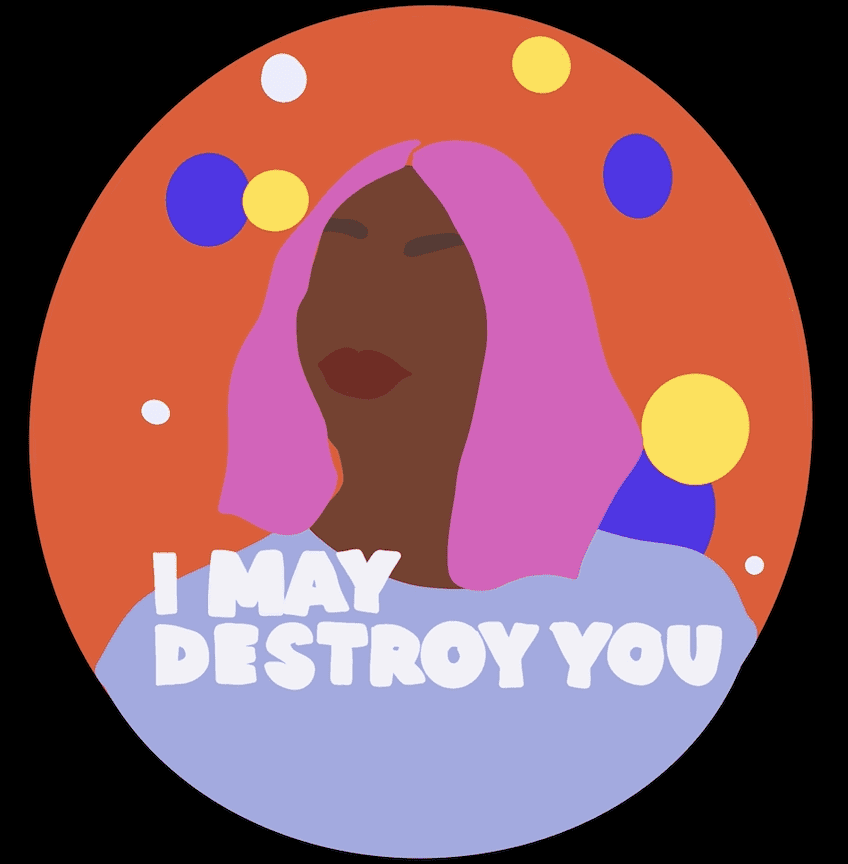Content warning: rape, sexual assault, trauma
I am not one to jump on a bandwagon. Almost every time I try, I end up not enjoying the ride. When, many years ago, I tried to watch an episode of The Bachelor, it made me carsick. And just one look at the long, windy, bloody road through The Handmaid’s Tale forced me to run as far as I could in the opposite direction.
Arguably, the television bandwagon of the year thus far has been British actress and writer Michaela Coel’s new show I May Destroy You. This time, I wanted to jump on it as fast as possible (made difficult by the fact that it aired in Australia a good three months after airing in the United Kingdom and United States).
To stretch a metaphor as far as it can possibly go, I didn’t want to get off.
A Sydney Morning Herald review of the show claims, ‘Yes, I May Destroy You really is that good’. I would like to paraphrase this by re-emphasising, ‘Yes, I May Destroy You really really is that good.’ The show capitalises on everything that I think makes great television: multifaceted characters, a slow-burn plot and coexisting shades of light and dark in its tone. At the heart of it is Coel, who portrays emerging writer Arabella Essiedu. The story kicks off in the first episode with Arabella joining her friends on a night out at a club, which ends on a disturbing note: she finds herself at work the next day with a cut on her head and no recollection of the previous night’s events. It ultimately transpires that Arabella has been raped.
The following episodes take us through Arabella’s unravelling her trauma, as well as its impact on the people around her. One of her best friends, Terry Pratchard (Weruche Opia), tries to guide her through the aftermath of the rape. Sometimes, Terry proves successful and other times, she doesn’t. Meanwhile, Arabella’s other friend, Kwame (Paapa Essiedu), balances his sympathy for her situation with his own complicated feelings regarding his own sexuality.
In the so-called ‘post #MeToo era’, I’ve sometimes worried that we’re losing grasp of the nuances of sexual assault. I May Destroy You keeps these worries at bay. The rape that Arabella survives is clearly depicted as something that can happen to anyone, regardless of where you are or who you’re with. The acting and direction alike are naturalistic and lacking in melodrama, painting sexual assault as a realistic thing that is just part of being human. It’s not something that happens once in a lifetime to someone with extremely unlucky circumstances – it just…happens. It’s sad to think about it in this way, but it is accurate; 17 per cent of women and 4.3 per cent of men in Australia have experienced some kind of sexual violence or assault in their lifetimes (unfortunately, I am unable to find equivalent statistics regarding nonbinary people).
Coel has created an authentic character in Arabella, and an authentic story in the plot. This authenticity is carried through all strings of the plot. In one later episode, Kwame organises a threesome with two other men, one of whom backs out at the last minute. When Kwame and the other man are alone, the man nonconsensually humps him. Kwame brings his case to the police, who dismiss him on the grounds that he doesn’t know the perpetrator’s name, as well as the fact that the assault is non-penetrative. Another episode depicts Arabella seeking mentorship from fellow writer Zain Tareen. What is supposed to be a professional chat ultimately morphs into a sexual escapade, during which Zain removes the condom without Arabella’s consent. This boldly raises questions as to what we should deem ‘assault’ versus what we should deem ‘rape’, and how these questions might not be that easy to answer.
What struck me the most about the plot is that Arabella’s case never gets solved. She ends the series with a question mark above her head, but it’s significantly smaller than it was at the beginning of the series. Therefore, Arabella’s arc isn’t about figuring out whodunnit. It’s not really about the police or crime or the law – it’s about trauma.
As a piece of television production, I May Destroy is expertly made. Coel’s writing imitates life – it’s funny as well as morose, sometimes even at the same time. The themes of sexism, sexual assault and misogyny are not skirted over or taken for granted, probably because Coel’s own life has embodied these themes. When she partook in the 2018 Edinburgh TV Festival MacTaggert lecture, she revealed that she had survived sexual assault and has later named this event the inspiration for her show.
I May Destroy You is nothing short of a cultural reset. I hope that this show will rekindle the fire of the #MeToo movement and pave the way for future women of colour storytellers.
I May Destroy You is available in Australia on Foxtel Go.
We acknowledge the Ngunnawal and Ngambri people, who are the Traditional Custodians of the land on which Woroni, Woroni Radio and Woroni TV are created, edited, published, printed and distributed. We pay our respects to Elders past and present. We acknowledge that the name Woroni was taken from the Wadi Wadi Nation without permission, and we are striving to do better for future reconciliation.
